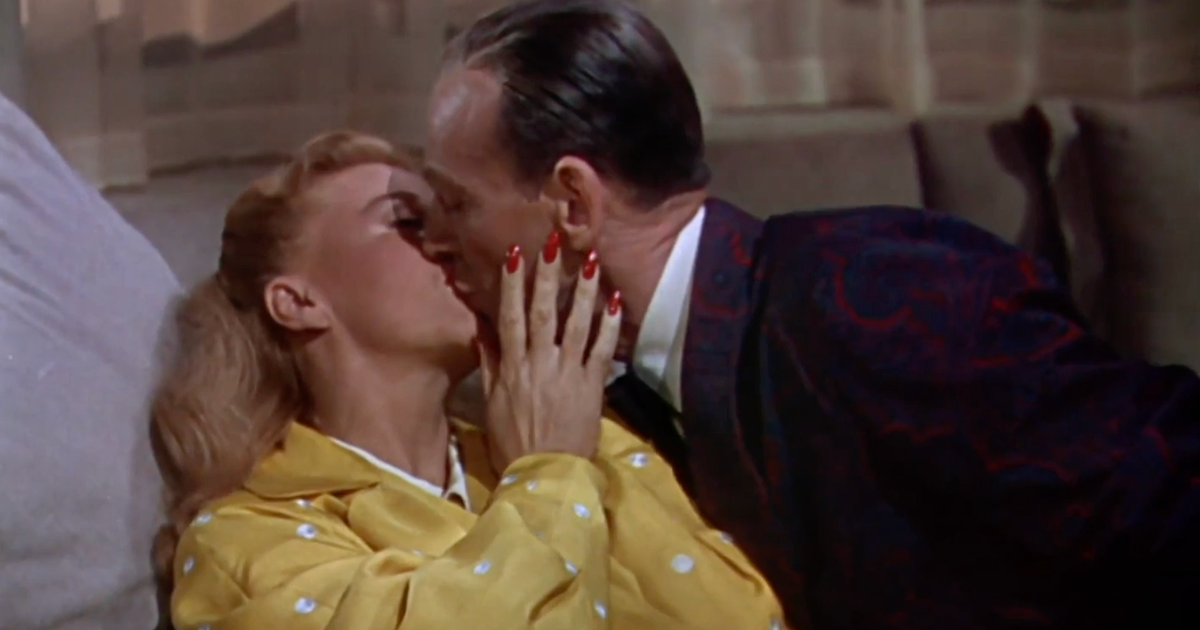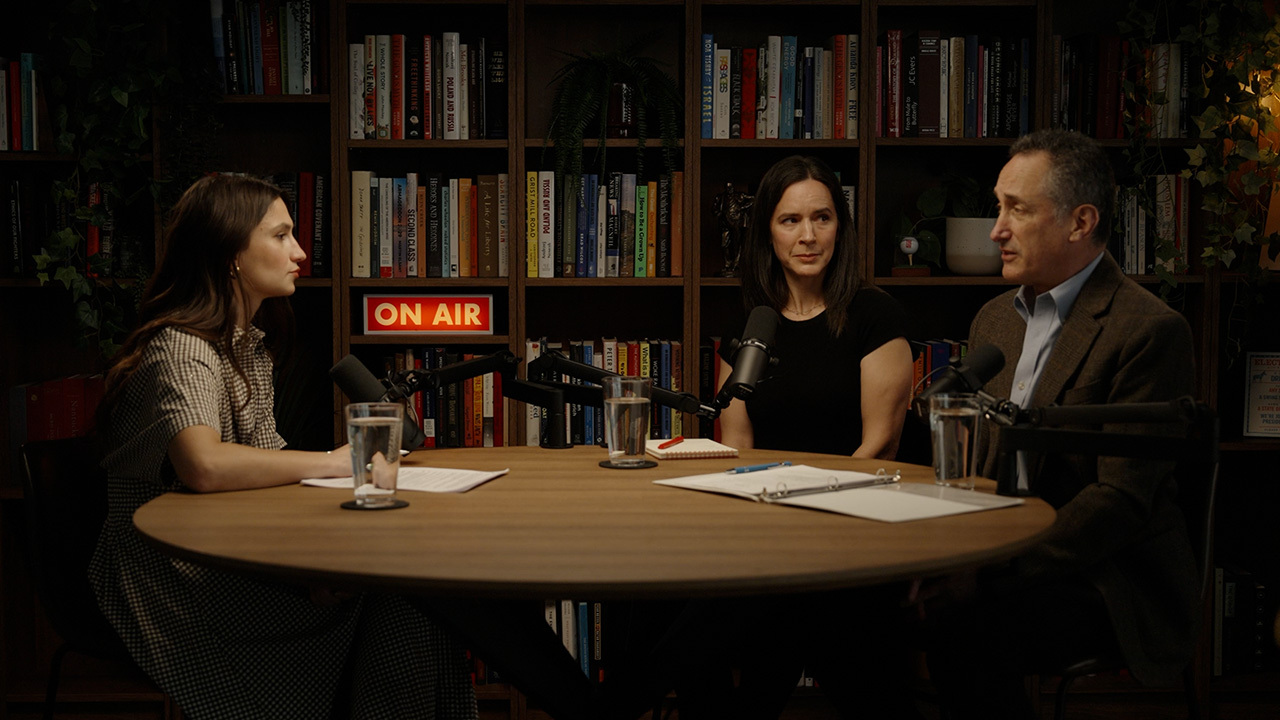Dying wish: Arguing the right to die
What if a patient's DYING WISH is to die on his or her own terms? It's a passionately debated topic within families -- and within state legislatures -- and not even the terminally ill are in agreement. Our Cover Story is reported by Rita Braver:
As a U.S. Marine, J.J. Hanson survived combat in Iraq. But after he got home, his life was suddenly in peril.
"We were having a lunch meeting, and all of a sudden I started getting this intense feeling," he said. "And my hands started to shake and started to sweat. I said, 'Guys, there's something wrong with me. You need to call 911.'"
His wife, Kristen, recalls: "I got the phone call from the EMT telling me that he had had a seizure, and it was nothing but a feeling of shock: My perfectly-healthy husband was in the hospital."
After an MRI, the news got worse: Kristen Hanson's 33-year-old husband was diagnosed with brain cancer.
"I had a prognosis of likely four months to live," Hanson said. "In a best-case scenario, I could possibly make it a year."
Hanson underwent surgery and chemotherapy. He struggled through nine more seizures while losing his ability to talk and walk.
"I am thinking, what do I do here? Do I continue to fight? Do I give up? Is life worth living? Is it worth going on and feeling this pain?"
J.J. Hanson found himself in the midst of the same daunting struggle as Brittany Maynard, who also suffered from brain cancer. "I refuse to subject myself and my family to purposeless, prolonged pain and suffering at the hands of an incurable disease," she had said.
Maynard made national news in 2014 when she moved to Oregon so she could legally receive a prescription for a lethal combination of pills.
- Brittany Maynard doesn't "want to die" (CBS This Morning," 10/14/14)
- For 29-year-old newlywed, dying with dignity a personal quest (CBS News, 10/08/14)
On November 3, 2014, she ended her life on her own terms.
Her story inspired a change in her home state: California recently became the fifth state to legalize "aid in dying." The law will take effect later this year.
A Gallup poll last May shows nearly seven in ten Americans support it.
- Did Brittany Maynard change minds about right-to-die laws?
- Will Brittany Maynard inspire more right-to-die laws? (CBS News)
Barbara Coombs Lee, who heads up an advocacy group called Compassion and Choices, says the subject of assisted suicide is no longer toxic. "It's not taboo anymore," she said.
She co-wrote the first-in-the-nation Oregon law, passed in 1994. It enables terminally-ill, mentally-competent people to ask a doctor for life-ending drugs.
"It's the individual who initiates a request, who undertakes a number of steps in order to gain eligibility," Coombs Lee said. "And then the last safeguard -- a very important one -- is that person has to administer the medication themselves."
But no such law exists in New York State, where the Hansons live, and where Eve Eliot shared a home with Jim DelGrosso, her husband of more than two decades.
"He loved birds," said Eliot. "He was, like, insanely in love with birds, which meant he did not like squirrels.
"He was my true, true love. And I fell intensely in love with him, immediately.
But in 2013, her true love, a professional painter, was diagnosed with ALS, known as Lou Gehrig's disease. It was incurable. DelGrosso quickly lost the use of his hands, and then, control of his entire body.
"To see him not be able to hold a paintbrush, or a spoon ... his life had actually left him, is what happened," she said. "His life left. He was in his body, but his life was gone. And to see him be a prisoner of his body, was unbelievably and indescribably painful. Awful."
To end his suffering, DelGrosso made an excruciating decision: "We had talked about it for hours and hours and hours. We had talked about it for hours, trying to find a way to help him get out of this prison," she said.
With no other legal option in New York State, DelGrosso stopped eating and drinking. He died days later from dehydration.
"He was in this terrible prison and it was his own body," Eliot said. "I want people to hear this: If you have not had this kind of experience or been very close to someone who's had this experience, you really can't know. You just can't know."
"Comfort at the end of life shouldn't be an accident of your geography," said Barbara Coombs Lee. "Everyone should be able to feel comfortable at the end of life."
To make that possible, Coombs Lee says her team now has set its sights on New York as the next battlefront.
Her game plan, she told Braver, is "to take people who have firm beliefs and turn them into activists."
Eve Eliot is already on board. But there are still many opponents, including folks you might NOT expect, such as J.J. Hanson. "If this is legalized in New York State, you're going to see immediately the negative outcomes," he said.
After he briefly contemplated ending his own life, Hanson is still fighting. Almost two years after his diagnosis, he's finished his chemo, and he heads the Patient Rights' Action Fund AGAINST aid in dying.
Braver asked, "Why do you feel that you can make this decision for not just yourself but for other people?"
"If you have a full legalization across the United States, people like me will start to look at assisted suicide as their only alternative," he replied. "I was told twice by doctors, 'Your time is done.' They told me basically that I was dead. Where does your hope go?"
The American Medical Association is on Hanson's side. Its code of medical ethics reads:
"...allowing physicians to participate in assisted suicide would cause more harm than good..."
Hanson also fears economic injustice: "If you're looking at someone who is very poor, and this is the only alternative they have because their insurance company will not fund their chemotherapy, well, now it starts to become a problem."
But Coombs Lee says it's just the opposite: "The injustice right now is that there is a huge underground practice of aid in dying. Doctors write prescriptions with winks and nods. But the people who can avail themselves of that are people of wealth, people of stature, people who play golf with their doctor."
In Oregon, she says, one big sign that legalized assisted dying works is the fact that roughly a third of those who get lethal prescriptions in a given year never end up using them.
Braver asked Eve Eliot, "Do you think that just knowing that your husband would have had the option to get a prescription would've eased the anxiety for you?"
"Oh my God, I would've been so grateful," she replied. "Because he would've felt so validated, so understood, so actually taken care of, so heard. He would've felt heard."
But the Hansons are focusing not on what might have been, but what could be.
Kristen Hanson told Braver, "The reason that we felt we needed to speak up and share our story is, because we've seen that you can beat the odds. And we're afraid for all those people who will hear that dire prognosis, and just accept it."
For more info:



